Article By Hunter Willis, August 2025
For many years, I’ve set out to learn about and reproduce books that were in the hands of the people of early 17th century Virginia. This is in part for my own education but also to forward historical interpretation and research on the topic.
Below I have set out to explain where information about specific books bought by the Virginia Company can be found, how we know were transported to early Virginia, and shed some light on the nature of ownership and usage of the books, which are listed at the bottom of the page.
Some books were bought, some produced and some inherited or donated to the Virginia Company. All were sent with the intention to aid the settlement of the colony- some in the form of productive instruction such as books on agriculture, some in the form of religious materials, and some simply to distract and inform with the latest news.
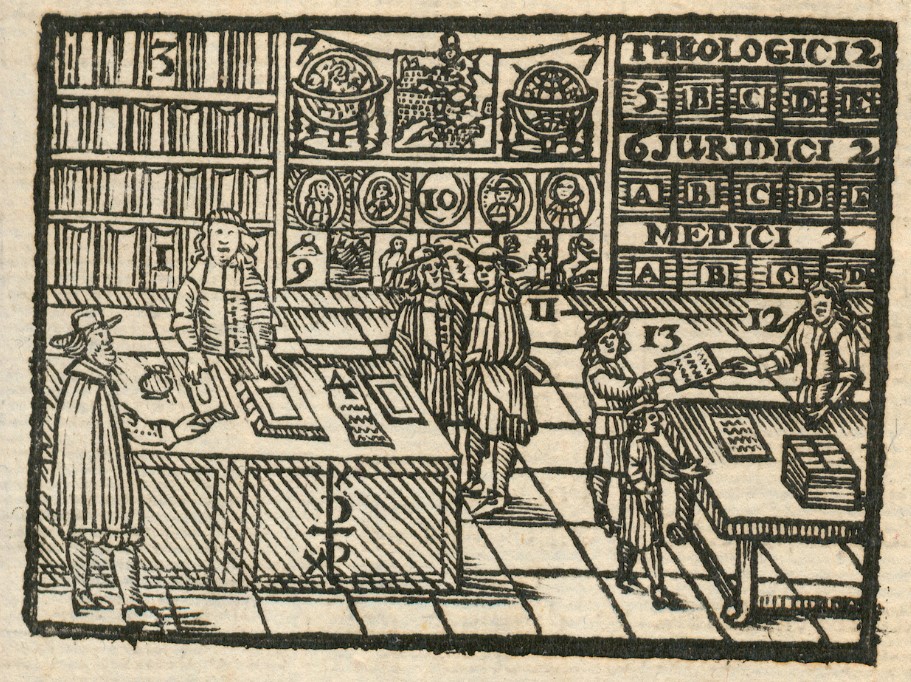
Books Listed in the Archives and Records of the Virginia Company
In the Virginia Company archives, there exist several lists of ship inventories including the cost of goods purchased by the Virginia Company. In many instances, the inventories are listed as being sent to the colony on certain ships, sent on certain dates etc. There are also a great volume of letters, receipts and other information that relate to books in the colony of Virginia, specifically before 1624.
Something of a Library
It has been established that there was made a public store of books in the colony of Virginia, and in doing further research (as noted below) I’ve found several excerpts that allude to the nature of this store, princibly in April 1623, the company wrote to the king that the colonists store and keep “their frequent letters, Instructions and Charters to that effect together with sundry printed Books made purposely and published for their help & direction (the full viewe wherof is prohibited to no man).” From the letters and notes in the Virginia Company Archives (Ferrar Papers), several notes deem that once the owners of books died, their books were transferred to public ownership and were accessible by all in the colony.
The initial proposal for a school in the Virginia colony was for a chilrens school in Charles City and money was set aside in part “to provide good store of books fittinge for their use for which their Parents are to be aunsweareable.” This motion would mature and bear fruit in the form of the college of Henricus, which was bestowed a number of books (mentioned below).
Francis Bolton, who came to the colony in 1621 first to be a minister in Elizabeth City, then the eastern shore, and finally in Jamestown, had his bill paid to Robert Ely Stationer 11 pounds, 15 shillings and 10 pence for a list of books ” for his use and after to remayne as a store for the benefit of the Colony.”
In his 1948 article, William S. Powell noted that “Indeed the colonists’ practice of carrying books to Virginia was so well established that as early as 1621 the Virginia Company, in a letter to the governor and council in the colony relative to the sending of a new minister to Virginia, could write, ‘As for bookes we doubt not but you will be able to supplie him out of the lybraries of so many that have died.’ ” (Original: [CXC] VCR Vol III)
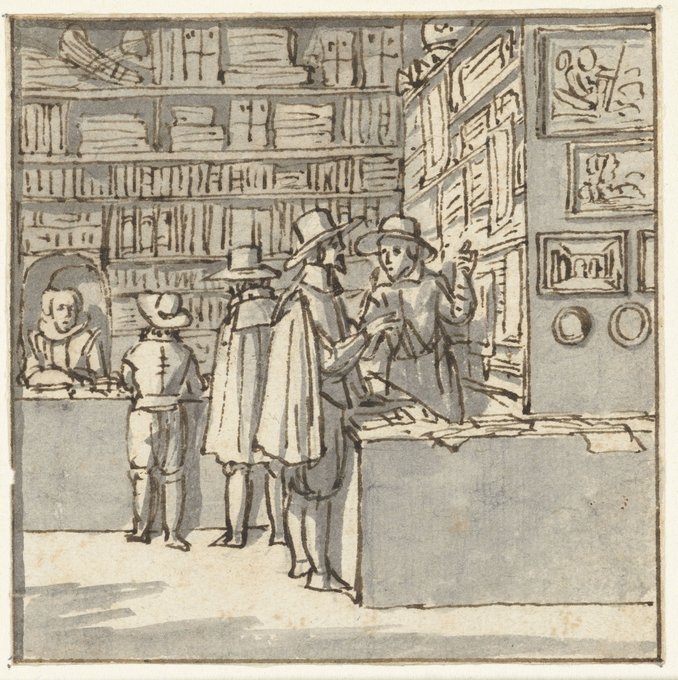

Other Notes of Interest
It seems that large quantities of paper, parchment (for commissions) and velum were purchased for the keeping of accounting and records, both for the company in England and to send to the colony. It is also the case that several copies of pamphlets and books commissioned to be printed by Felix Kyngston and others were sent to the colonies, including John Smith’s “General Historie.”
It’s interesting that beyond one mention of a “Great Bible”, there is no annotation of which bible versions or years of books of common prayer were sent, though many of each were purchased.
It may also be interesting to the reader that the cost of these books holds up at being from just under to nearly twice the amount of the average English person’s annual wage for the period, with the exception of unbound pamphlets of course.
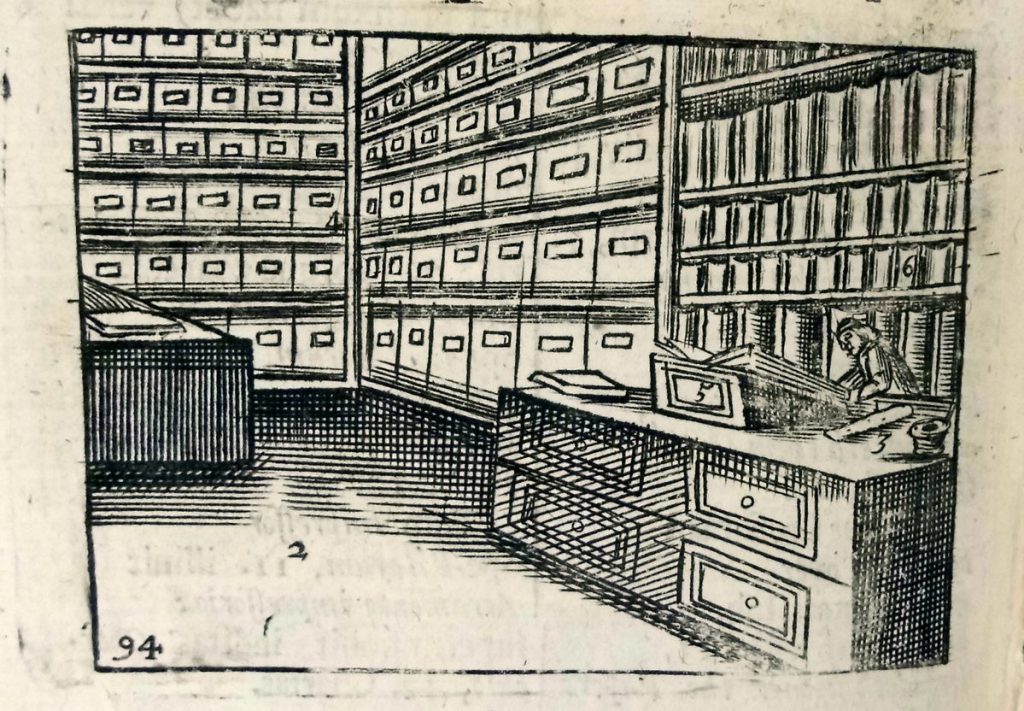
Of note, there are a few mentions of the purchase or gifting of small libraries, chests of books or great quantities of books to individuals with no description of content or title, but delivering further confidence of both the large quantities of books in Virginia before 1624 and the perceived necessity of books by those supporting and taking part in the establishment of the Virginia colony.
In his forward to “Hunger’s Prevention or the Whole Art of Fowling,” Gervase Markham, a well known author of the day, paid tribute to the leaders of the Virginia Company and began the book with a forward explaining it was written to the aid and instruction of the colonists.
Beyond the promotional/propagandist pamphlets commissioned by the company, they undertook translation of two French books on “buildinge of fitt houses for Silk- wormes and in plantinge Mulberie Trees” by Olivier de Serres- La Cuillette de la Soye, and La Seconde Richesse du Meurier-Blanc. The result is likely this pamphlet, of note yet another printed by Felix Kyngston (Also listed below).
Lastly, I’ll comment that a great many of the books and pamphlets reinforce the Puritan leaning and religiously enthusiastic nature of the a great number of ministers and colonists during this period in Virginia.
List Sources
This list is primarily derived from receipts (warrents) for a bookseller John Budge, but there is another bookseller, Robert Ely, who is recorded as selling a few titles to members of the company.
Two of the lists are compiled from ship manifests, one the Margret, setting sail in July of 1619, and one the aptly named Supply, sailing in 1620. A third, the most comprehensive list, is an accounting for the payment to Budge for a number of titles, recorded in December 1620. In many cases, a few of each title was purchased, and in some as many as thirty went to Virginia. A large amount of Bibles and Books of common prayer (not listed below) are mentioned throughout the records of the Virginia company, and some were sent with the ship Hopewell in 1623.
Other books and quantities of books, such as the small library of 10 physician books which mad their way to the colonies after the “Untimely death of” their owner “Doctor Bohune slaine in the fight with two Spanish Ships of Warr” are mentioned but we have no specific titles. Again this is also true for the specific bible translations and versions of books of common prayer.
There are a few mentions of other books and titles like Walter Raleigh’s 1599 Map and Description of Guiana, St. Augustine’s Citie of God and The Works of WM Perkins which were donated at the opening of a meeting in November of 1620 by a man who “desired his name might not be made known.” These materials would be provided to the college of Henricus, and with little doubt did not survive the schools burning in the 1622 massacre.
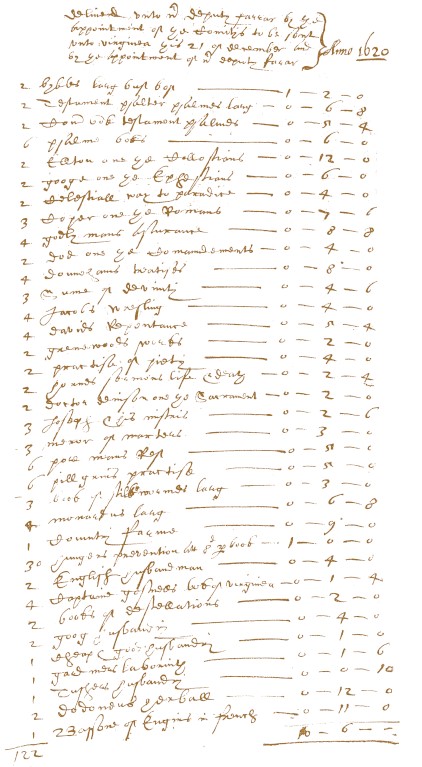
A List of Titles Purchased By the Virginia Company Before 1624
Click the title column links to view.
The date printed is not always the first edition, nor does the link always point to a copy of the date. Browse Archive.org by clicking the author and filtering by year to see additional/available scans for each.
William S. Powell quotes George Thorpe requesting the below in 1621 to assist in the governance in the colony-
it is unknown if they were sent, but it is quite possible they were at some point soon thereafter:
| REQUESTED (Likely Title ): An abridgement of touts les ans del roy Henrie le Sept | 1614 | Company of Stationers |
| REQUESTED: Les Plees del Coron divisees in plusiours title 1557 or Les Plees del Coron (1567, 1574, 1583, 1607) | 1567 | William Stanford/Guilliaulme Staunforde |
| REQUESTED: Symbolaeographia. The art, description or image of instruments- 1590-1618 | 1618 | William West |
*Markham published many books, and many on this topic alone. We highly recommend you browse his works by clicking his name/browse by author on Archive.org
This is a comprehensive list with a somewhat wide variety of topics for the day, any most of them are no surprise to those of us interested in this topic, though there are a few “gocthyas” among them. Indeed, I have already completed or am working through the ability to print several of these titles for use in historical interpretation. I hope that you the reader have found this information interesting, and will share this page and reference the list above in the future!
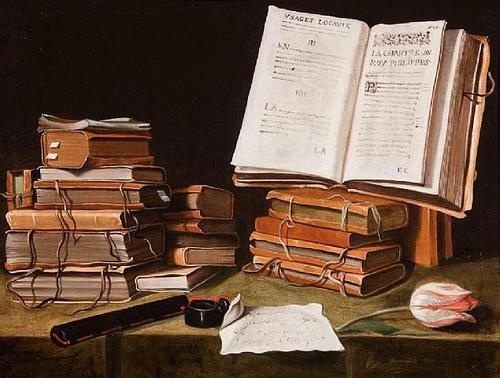
Some Concluding Observations from the Author
It is amazing to me that some of the letters indicating that books should be made available to the colonists at large “after” were addressed to the recipients of the books. I cannot imagine receiving a letter along with a parcel that indicates to me that it should be kept safe after I am dead. It is an ever-persistent reminder of how much people thought about and were very aware of death, as well as how far we have come.
There are also some conclusions and connections that I have been able to draw that are peripheral to this topic that are only possible with immediate access to online information and only available due to the scalability of digitization- pamphlets and books unknown to the authors referenced below or mentioned as having unknown whereabouts are accessible with the click of a button.
Sources:
Books in the Virginia Colony Before 1624 (1948)
William S. Powell
A LIST OF BOOKS PURCHASED FOR THE VIRGINIA COMPANY (1969)
edited by DAVID B. QUINN
(Note: you can read ~100 JSTOR articles/moth for free if you sign up for a free account)
The Ferrar Papers (Virginia Company Archives), held at the Magdalene College, Cambridge University; The quotes above not referring to the afore mentioned articles all come from the records of the Virginia Company.
Thanks to Kaia Moseley for referring me to the lecture of Professor E.M. Rose who presented on part of this topic at the Rare Book School at UVA in July 2025, providing the breadcrumbs leading to the research above.
